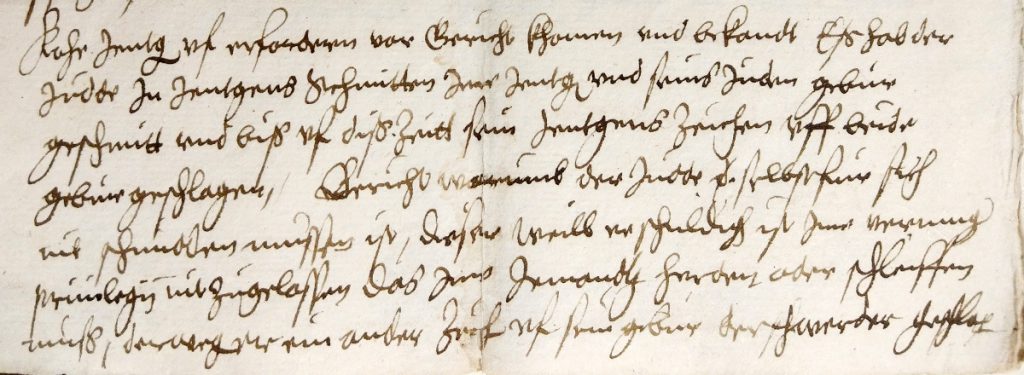In the Duchy of Jülich-Berg, the decrees and ordinances that determined the situation of the Jews changed according to the respective ruler. Since 1514, they were required to wear a yellow ring on their chest as an identification mark. While in 1525, John III punished usury, especially among the Jews, but tolerated their presence, his son William IV issued the order in 1554 that all Jews were to be expelled, including those with letters of protection. The threat of expulsion does not seem to have been implemented across the board, however, for in 1568 the minutes of a “Schleifergericht” (grinder tribunal) mentioned an unnamed Jew who forged swords on behalf of a swordsmith in Solingen. He was forbidden to strike the mark of the blacksmith Jentgen on the swords he had hardened and sharpened, since only Jentgen had the privilege to do so.
This is the first mention of a Jew in Solingen who, moreover, unusually pursued a craftsman profession. The first Jews known by name in Solingen were generally active as butchers or in trade. It was only in the wake of Napoleonic rule (1806–1813) that they not only achieved civic equality, but also enjoyed craft privileges, enabling them to participate in the production of steel goods in Solingen and arms export.

